What is Auto Detailing?
Car detailing is deep cleaning, meant to restore the vehicle back to a show-floor condition. It is much more thorough than a car wash and must be done by hand.
You should detail your car twice a year to keep it looking its best. Detailing is also a good idea if you just bought your car used and is essential before adding decals or a new car wrap.
Exterior detailing involves vacuuming and degreasing the wheels and wheel wells, powerfully washing the car, and waxing the body. Interior detailing involves steam cleaning the mats and leather trimming the seats.
Car Detailing Supplies You'll Need
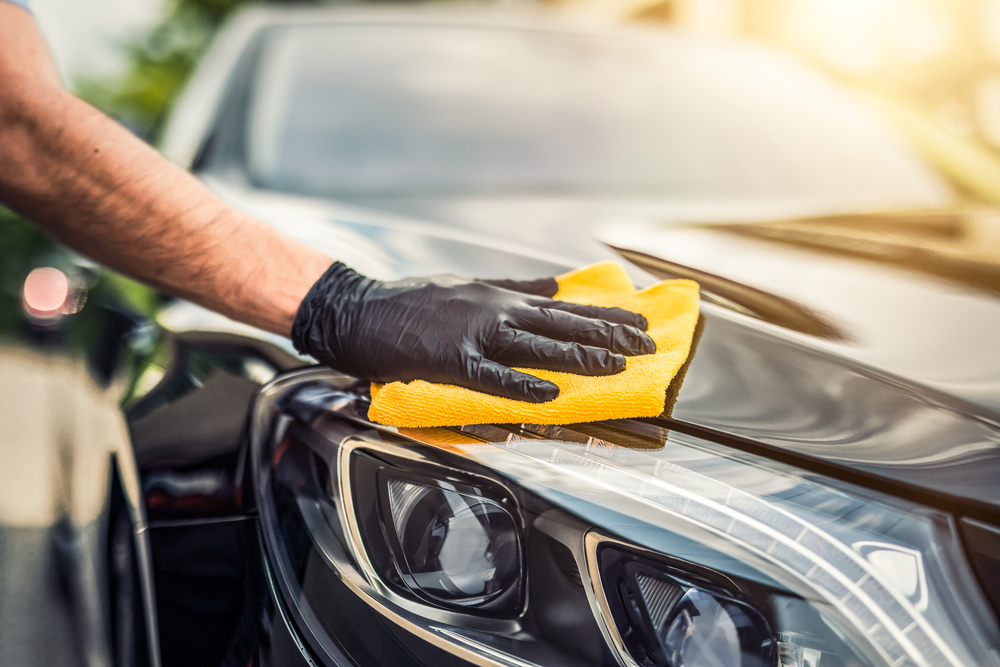
The Shammy
You’ll need a cloth, but not just any cloth. Ordinary rags are not soft enough to absorb and cushion any bits of grit, and they can often instead scrape the grit across your finish, adding scratches. Even if those scratches are too small to see, they add up, making your finish less reflective and more dirt-absorbent over time.
Amateur detailers use microfiber cloth, which works well for most purposes. The little fibers absorb dirt extremely well, eliminating the risk of scrapes.
Professionals use suede chamois instead of microfiber. The strong leather works as a squeegee, forcing water off without absorbing it. A new piece of suede is a little hard and can drag grit, but it will soften with age or with repeated washes in soapy water.
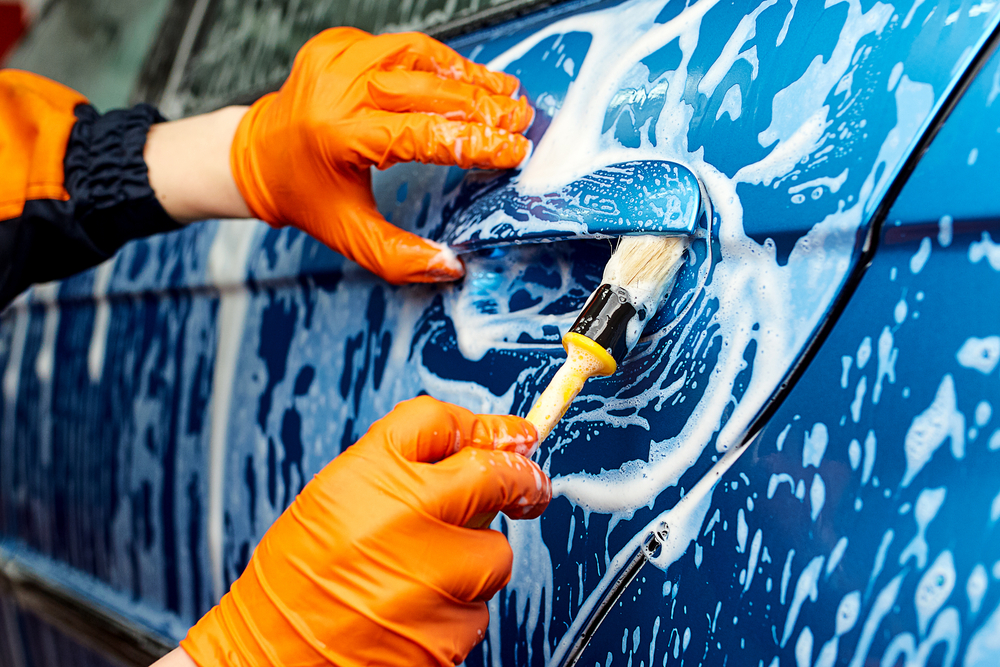
Brushes
A set of high-quality detailing brushes is needed to get in all the nooks and crannies, especially in your rims and wheel wells. Start with softer ones until you have a few detailing jobs under your belt.
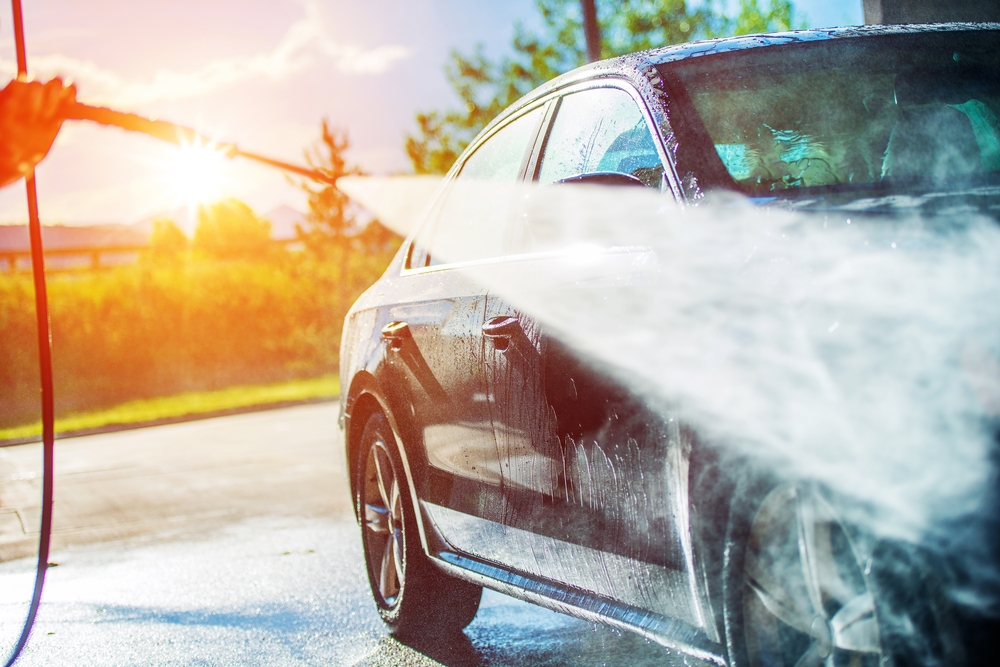
Pressure Washer
If your car is your baby and you take detailing seriously, invest in a pressure washer. This beautiful piece of equipment mimics a mechanic’s pressure hose, blasting the dirt stuck deep in your car’s finish.
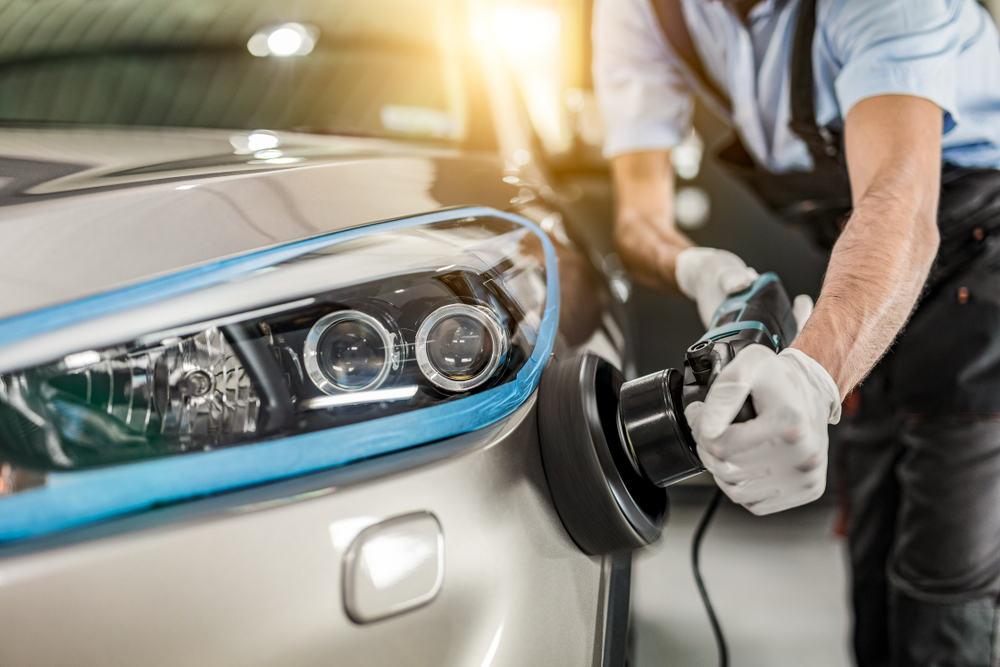
Wax and Sealant
After putting in so much work detailing your car, you’ll want it to stay clean and shiny for as long as possible. That’s where wax and sealant come in. Wax replaces your car’s original polish, and sealant keeps the new shine in place.
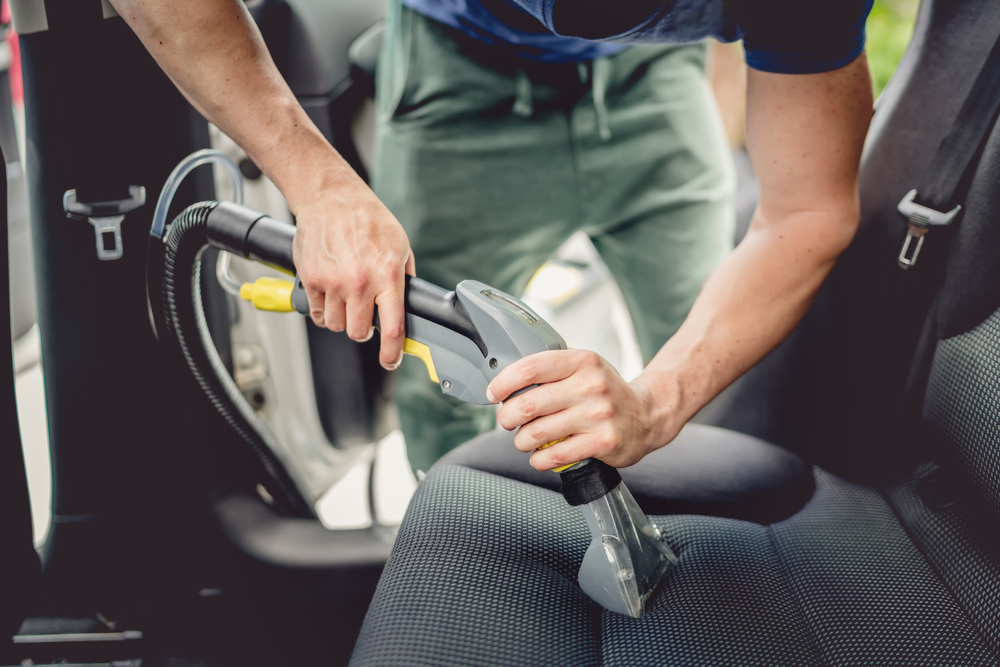
Handheld Vacuum or Attachment
A car interior is made up of a wide range of materials and has an even bigger range of messes to clean. Remember all that salt and mud on your shoes, dust and dirt in the air, and bits of snacks from that one time your brother visited with the kids? A vacuum will get most types of dirt our of most types of surfaces. Once you're done with these tips, if you really want to disinfect your car, we've got you covered.
How Much Does Car Detailing Usually Cost?
Exterior detailing wildly varies in price and quality, but a decent job will cost at least $100, and up to $250. Higher priced jobs are usually worth it. Detailers will take more time, about 2-3 hours instead of 1-1.5, which gives them enough time to get every speck of dirt. They also will use a higher-quality wax and sealant, extending the time your polish will last. If you pay more for a detailing job, you will also be able to go longer before getting your car detailed again.
How to Save Money with DIY Auto Detailing
Of course, instead of paying someone $250 to spend the full three hours on your vehicle, you can always do it yourself.
Labor makes up almost the entire cost of detailing. All materials and enough wax and sealant to last years will run you under $200 and you can find them all at Canadian Tire. Get them, and you’ll never need to pay for detailing again.
Top 5 Car Detailing Tips from the Experts
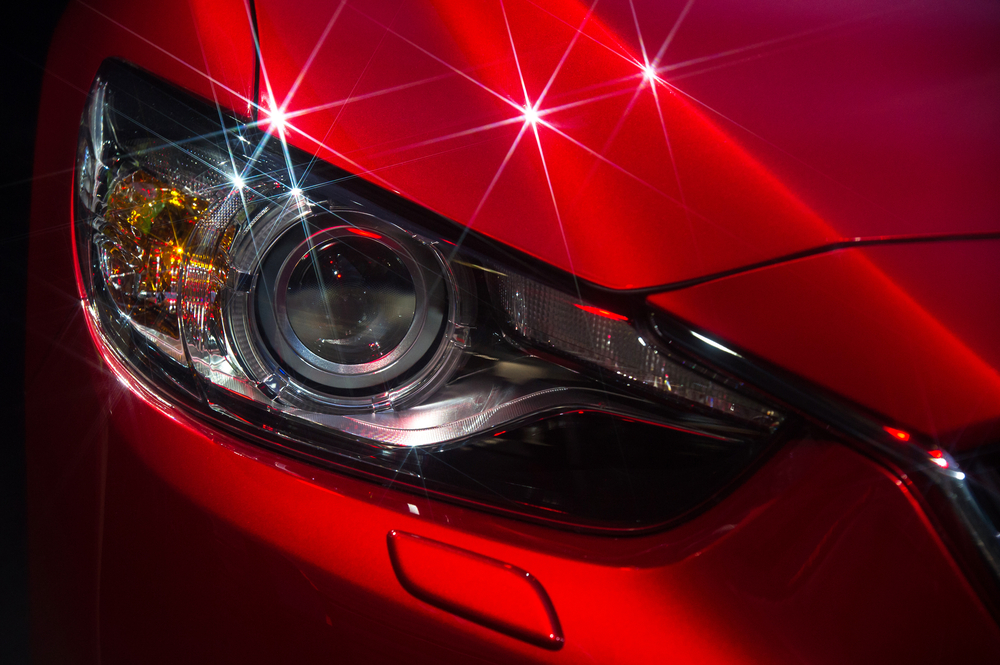
1. Dry in Different Directions
When drying your car, wipe in one direction on the outside and the other on the inside. That way, if any streaking happens, you’ll know immediately which side of the glass it’s on.
2. Don’t Forget the Rust
Rust builds up on stainless steel trim, and most detergents can’t do a thing about it. Instead, use a metal polish. If that doesn’t work, try rubbing it with a bit of steel wool, as carefully as you can.
3. The Dirtiest Part is the Steering Wheel
All the areas where you put your hands and arms are coated in dried sweat, oil, and a layer of bacteria. Even if they look clean, they are not. Don’t skip over them when cleaning the interior.
4. Check Your Work
Checking detailing work is a bit of a paradox. It’s easiest to feel any remaining bumps or scratches with your hand, but you don’t want to put fingerprints all over your newly waxed car. The solution? Stick your hand in a clean rubber glove or a plastic bag and run it over the surface.
5. Put the Spray Away in your Trunk
It’s easier to clean a mess the moment after it happens. Keep the detailing spray and a microfiber cloth in your trunk, just in case you need to do some emergency car detailing.
Find the Perfect Used Dealer Car within the next 10 Seconds
